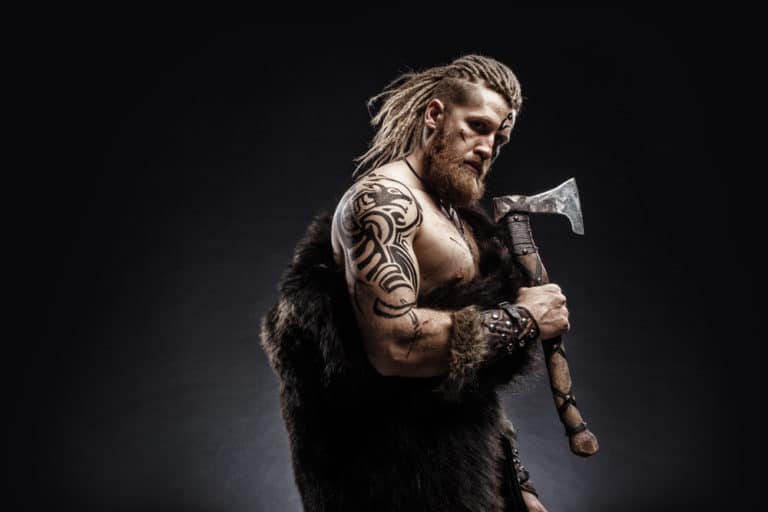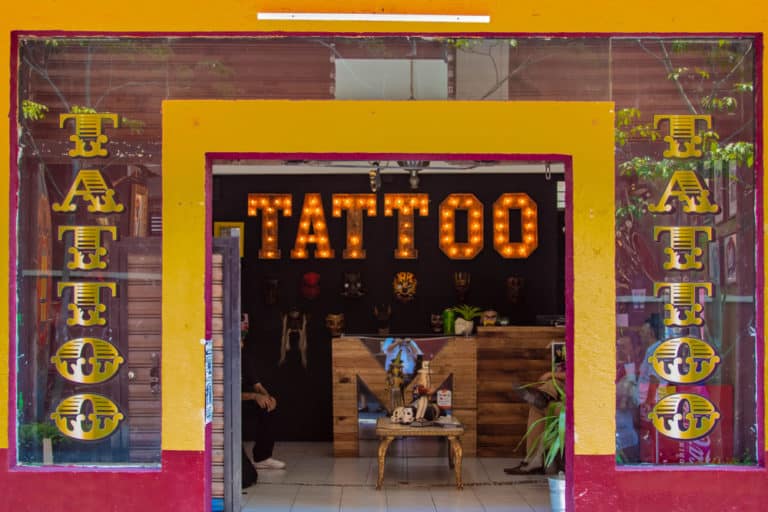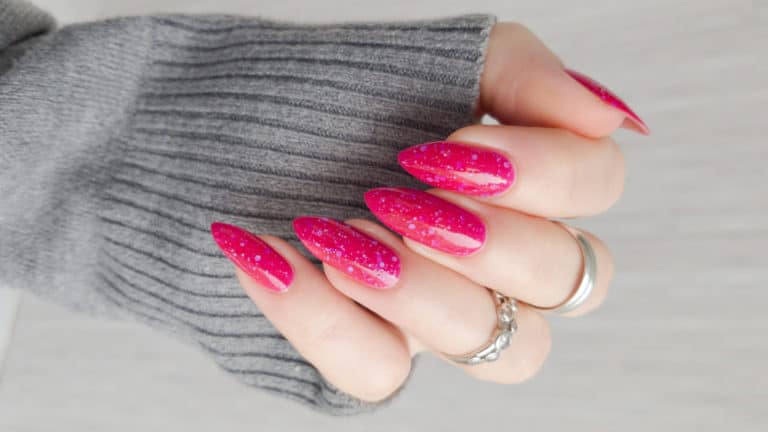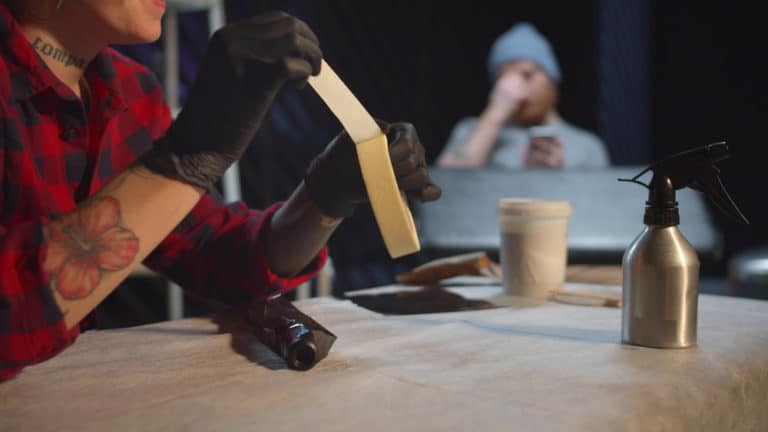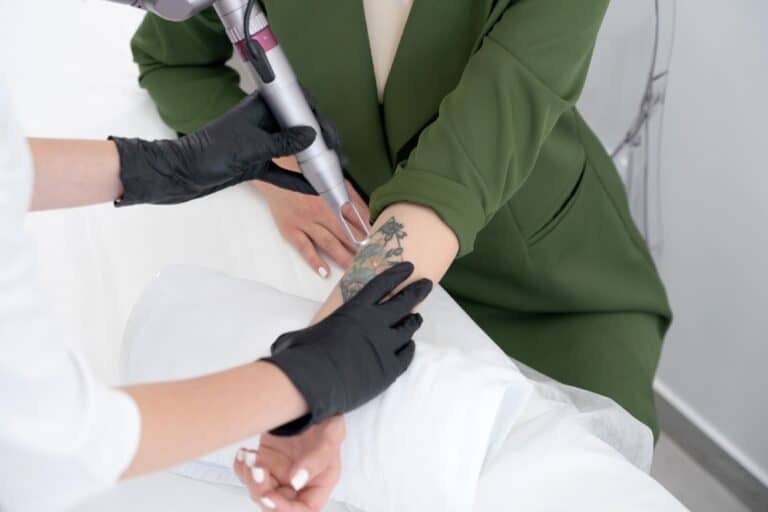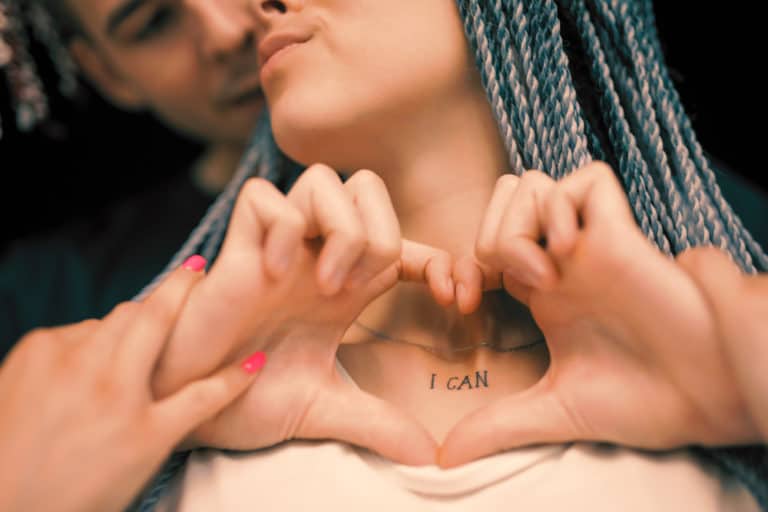Why Are Tattoos So Controversial?
In spite of the growing popularity of tattoos as a form of self-expression, tattoos are still primarily considered controversial. Similarly, people with tattoos are often discriminated against and stigmatized – particularly in the workplace. This begs the question of why tattoos are still so controversial, even in modern-day society.
Tattoos are controversial because they have largely been associated with barbarians, criminals, lower-class citizens, and gangsters. However, tattoos are becoming commonplace among younger generations like millennials and gen Zs. Tattoos are also becoming more acceptable in professional settings.
Although tattooing as a practice has been around for centuries, a large percentage of the population still regards having tattoos as a controversial subject. Our article explains why this mindset remains firmly in place and the reason for the sudden boom in tattoo popularity over the last few years.
What Makes Tattoos Controversial?
In modern-day society, tattoos are more socially acceptable than ever. But despite their popularity, plenty of people still regard tattoos negatively. Although some cultures revere tattoos and wear them as a badge of pride, many of the population still stigmatize them.
There are plenty of reasons that tattoos are still stigmatized today. These include historical depictions of tattoos, the argument of tattoos and professionalism, the meaning behind tattoos, and the emotional response tattoos elicit in other people.
Tattoo Controversy Throughout History
Historically, tattoos have been used by different cultures and religions to celebrate their heritage, honor the dead, and appease their ancestors. They may also have earned their tattoos through certain acts or trials.
But with the introduction of western civilization, these depictions were twisted to fit the narrative of a ‘civilized’ society. For this reason, tattoos were largely regarded as a barbaric practice and associated with uncivilized cultures.
As the practice of tattooing slowly integrated into western society, tattoos became associated with criminals, thugs, and lower-class citizens. Eventually, as society evolved, tattoos became synonymous with criminals and gang members.
Although younger generations in modern society no longer hold these views of tattoos and tattooing, older generations may still hold on to their stigmatized ideas of this body art. Older generations consider most forms of body modification to signify promiscuity, criminal behavior, and a degenerate lifestyle.
Therefore, introducing tattoos as an everyday body modification may still be controversial among older adults.
Tattoos In The Workplace
With most younger generations like gen Z’s and millennials now entering the workforce, tattoos are commonplace in working environments. However, some businesses still hold prejudices against tattooed employees.
Tattoos are primarily regarded as ‘unprofessional,’ and often, tattooed individuals struggle to find employment when they have visible tattoos. Although some companies may accept smaller tattoos that are easy to hide with professional attire, others may not be so welcoming of body modification.
Generally, tattoos in visible areas like hands, lower arms, necks, and faces are frowned upon in office settings. This is because companies think their clients and other businesses may negatively view dealing with tattooed workers.
The Meaning Of Tattoos
Tattooing has been around for centuries. But in the last 25 years, it has become a more common profession. Similarly, tattoos were previously difficult to get. But with tattoo shops being more easily accessible, younger generations are finding it easier than ever to get some fresh ink.
While tattoos may be easier to get, this comes with its own controversy. The accessibility of tattoos means that people can walk into a tattoo shop on a whim and get anything they like tattooed on their bodies. They may get a symbol of cultural relevance or a tattoo of ‘trendy’ imagery. However, these tattoos are often stigmatized – even by the tattoo community!
Although a funny tattoo with cultural relevance may seem like a good idea when you get it, it may not be relevant in the next few years.
Additionally, cultural symbols are constantly changing and evolving. For example, tribal tattoos were a huge fad in the early and mid-90s. However, modern society has become more attuned to cultural sensitivity and appropriateness, making it a tattoo style to avoid (unless it aligns with your beliefs and culture!).
Tattoos are also considered controversial because they are permanent. Teenagers and young adults often get tattoos on a whim or impulse. Although it may seem like a great idea at the time – they may come to regret their tattoo later in life!
Tattoos are a way to show the world who you are and express yourself. But they are also a source of regret if you don’t consider the long-term implications of your tattoo design. So, if you’re planning to get a tattoo, it’s essential to think about what your design means to you. It may not have much significance when you’re older!
Tattoos And Emotional Responses
Of course, your tattoo design is your decision. As is the placement, size, and number of tattoos you have! But it may be important to remember that art evokes specific emotional responses in the viewer – including your body art!
Firstly, one or two tattoos are generally considered acceptable by the majority of the population. However, the more tattoos you have, the more stigmatized you may become. Multiple visible tattoos may elicit fear in others and may even be a distraction in the workplace.
Similarly, larger tattoos can also evoke negative responses. While a small ankle tattoo may seem ‘dainty’ for women, large tattoos are generally regarded as unsightly. They will typically cause others to hold a more negative view of them.
The placement of tattoos seems to stir up the most controversy. Although some tattoos can easily be concealed with clothing and accessories, most people are uncomfortable with visible tattoos. Tattooed individuals with hand, face, neck or lower arm tattoos may seem intimidating and unprofessional.
Conclusion
Tattoos are a personal body modification that younger generations celebrate. But despite the popularity of tattoos as an art form and tattoo artistry as a profession, tattoos may still be controversial in certain situations.
Luckily, the controversy around tattoos is slowly fading, and they are becoming more socially acceptable in modern-day society.
Some of my favorite designs, tattoo books, and aftercare products, selected for you
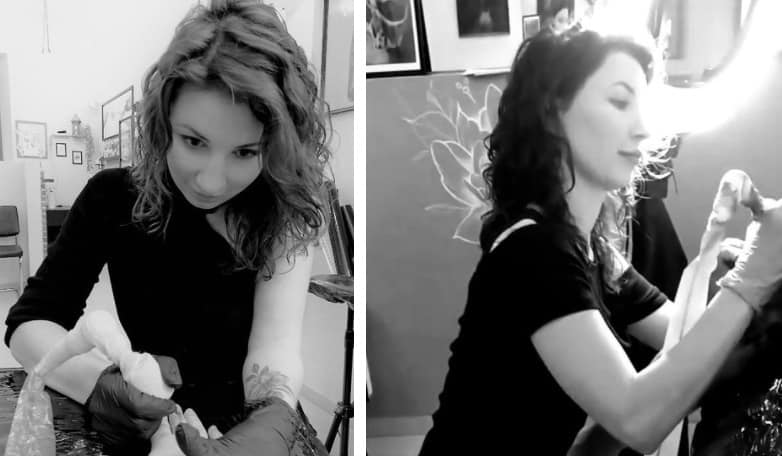
Thank you for reading my article, I hope that you have found it helpful. If you would have trouble finding ideas for your tattoo, wonder what is meaning of design that you have found or what to buy for aftercare, to make sure that your tattoo will be healing quickly and easily, here are some of my favorite products in one place, hope that this will also help.
Design and tattoo ideas
For some ideas you can have a look at those 3 books with hundreds of designs that I use with my clients, they are available on Amazon for Kindle or in classic, paper version (links below):
- Great Book of Tattoo Designs, Revised Edition: More than 500 Body Art Designs (Fox Chapel Publishing) Fantasy, Celtic, Floral, Wildlife, and Symbol Designs for the Skin by Lora Irish
- The Big Book of Small Tattoos – Vol.1: 400 small original tattoos for women and men by Roberto Gemori
- Tiny Tattoos: Over 1,000 Small Inspirational Artworks by Rebecca Vincent.
Tattoo meaning
If you would like to read more about the meaning of different tattoo styles and designs before you will decide what you would like to have, I can recommend a book that was really useful for me when I was starting my tattoo adventure – it’s “Conscious Ink: The Hidden Meaning of Tattoos” by Lisa Barretta (through the link you can find it on Amazon for around $10).
Tattoo aftercare
The skin at the tattoo site often dries out. To prevent it and speed up healing for my clients, I usually recommend one of those tattoo aftercare balms (you can find them on Amazon):


